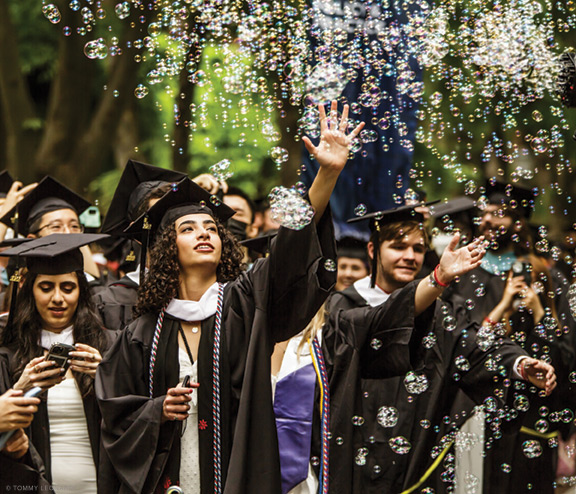
Documentary filmmaker Ken Burns urges the Class of 2022 to be “virtuous and purposeful.”
Plus: Commencement Webcast | Honorary Degrees
Midway through Commencement speaker Ken Burns’s address to the Class of 2022, a threatening, cloud-covered sky gave way to a quick and ferocious downpour on Franklin Field.
“We need more lightning rods!” Burns quipped as a sea of umbrellas sprouted from the graduates seated on the field, and parents and friends in the stands rushed upwards for cover. Yet the filmmaker—who recently released a PBS documentary on lightning rod inventor and University founder Benjamin Franklin—continued his speech despite the adverse weather. “You sit here, all potentiality and wonder,” Burns said through the driving rain, highlighting some of Franklin’s characteristic themes during Penn’s first full-capacity Commencement since 2019.
The shadow cast by COVID-19 loomed large over Penn’s 266th Commencement, as well as pandemic-created economic instability, ongoing protests for racial and social justice, the war in Ukraine, and the ever-growing threat of the climate crisis. No speaker during the May 16 ceremony shied away from the challenges that await Penn’s more than 6,000 graduates, but Burns looked to the past to issue a call to action to the Class of 2022, recounting the “remarkable” 1936 speech Franklin Roosevelt gave inside the same stadium when he accepted the Democratic Party’s nomination for a second term as president. “As I thought about all the strains on the fragile republic Benjamin Franklin hoped we could keep,” Burns said, “there’s one sentence Franklin Roosevelt spoke that day that stands out: ‘Better the occasional faults of a government that lives in a spirit of charity, than the consistent omissions of a government frozen in the ice of its own indifference.’”
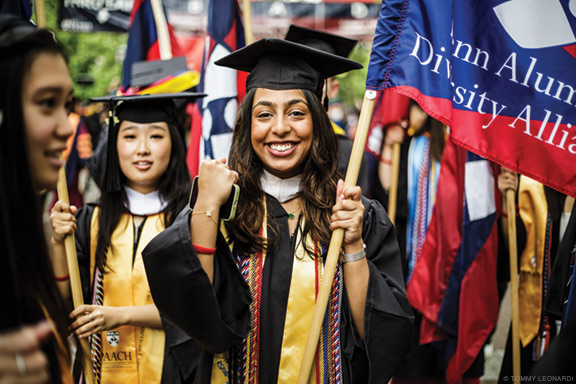

That sentiment—of accepting imperfection, contradiction, and error to achieve change—animated Burns’s address. “Over my professional life, I have come to the realization that history is not a fixed thing, a collection of precise dates and facts, but a mysterious and malleable thing, constantly changing, not just as new information emerges, but as our own interests, emotions, and inclinations change,” he said. “The question becomes for us now—for you graduates especially—what will we choose as our inspiration?”
Burns was not the only speaker to touch on themes of progress and perseverance. Penn Interim President Wendell Pritchett Gr’97—presiding over his first Commencement after succeeding Amy Gutmann (whom he presented with an honorary degree during the ceremony)—spoke to the graduates as a group “who have endured more than many classes who came before,” facing down “fundamental threats to democratic norms and values, pandemics and climate change, the rip currents of war.” But, in spite of those challenges, “your class exhibits heightened resilience and responsiveness; exceptional optimism, tempered by pragmatism; courageous compassion and selflessness. … You see the world—its many countless challenges, and unmapped possibilities—with near superhuman keenness. Where others see a roadblock, you discern a path forward.”
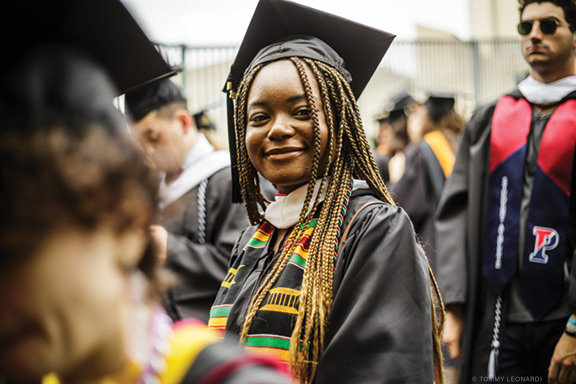
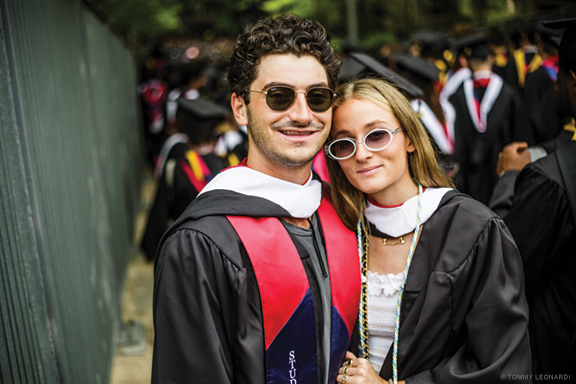
Benjamin Franklin certainly carved out myriad paths forward during his life, whether in politics, science, or civic service. In Burns’ eyes, the University’s founder represents many things—a man who “has been held up by every succeeding generation as the self-made person … a libertarian’s dream of self-reliance and self-interest”; a man whose “striving for material success was always tethered to a deep and abiding conviction, that, as he said, ‘The most acceptable service we render to God is doing good to his other children’”; a man “who saw himself as a spiritual being, obligated, in the best sense of that word, to contribute meaningfully to society.” And yet, “for all of that, he was also a profoundly flawed human being, who could not escape the sins the flesh is heir to, who was often distant and disconnected from his own family, a deeply prejudiced person who enslaved other human beings,” before he became an abolitionist later in life.
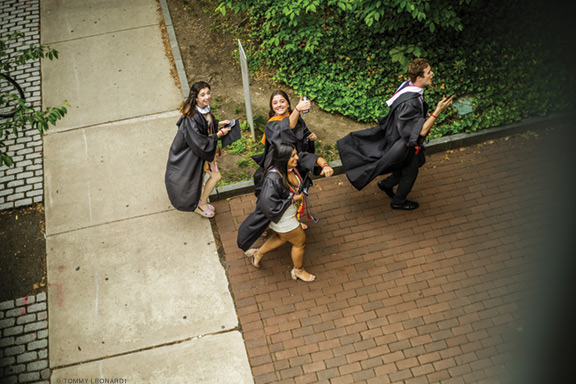
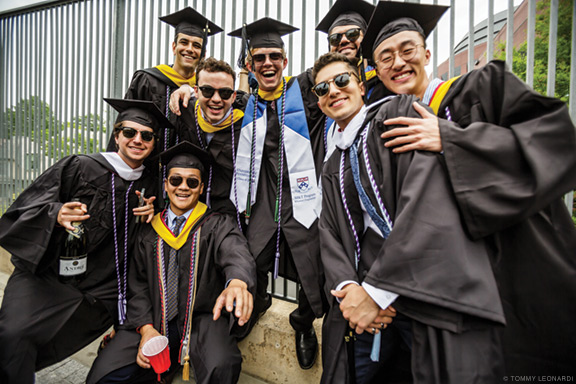
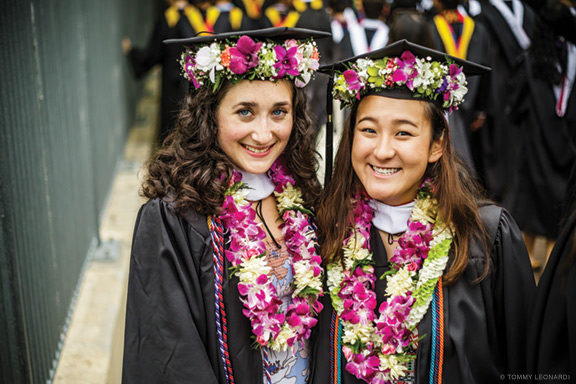
Relating Franklin’s legacy to today’s graduates, Burns noted the key to the Founding Father was that he was “always searching—nature, art, society, politics, science, faith, himself, looking for ways to improve in all those arenas, especially himself, for he understood deeply and painfully that he was a mass of contradictions and limitations, just like the rest of us. He was a work in progress, always in progress.”
Perfection cannot be the goal for the class of 2022, Burns argued. Rather, it is the pursuit of progress, the pursuit of what is right and good, that must be strived for by any human being—and this striving cannot only be in one’s own interest. “Unfortunately, we live in an age in which we are constantly encouraged to be independent free agents, economic units, seekers not of truth but of Benjamins,” Burns said. And in a time when collective action is more crucial than ever, when “our future as a democracy depends on you making things better,” the Class of 2022 will “have to learn and then reteach the rest of us that equality—real equality—is the hallmark and birthright of all Americans.”
In his closing remarks, Burns encouraged the graduates to be “curious, not cool. Be virtuous and purposeful. Do good things. Help others. Do not get frozen in the ice of your own indifference.” He spoke particularly to the graduates’ responsibility to remain thoughtful, intellectually engaged citizens. “Do not descend too deeply into specialism. Educate all of your parts—you will be healthier. Read. The book is still the greatest manmade machine of all. Not the car. Not the computer. Not the smartphone. The book. I think if Franklin came back today and thought about the Internet, the web, he’d say, ‘I observed in nature that a web is a place where you get caught, and then killed.’”
—Daphne Glatter C’25
Honorary Degrees
Ken Burns |Honorary Doctor of Arts
Mary Frances Berry | Honorary Doctor of Humane Letters
Atul Gawande |Honorary Doctor of Sciences
Amy Gutmann |Honorary Doctor of Laws
Carla D. Hayden | Honorary Doctor of Humane Letters
George E. Lewis | Honorary Doctor of Music
Margaret H. Marshall | Honorary Doctor of Laws
Edward Witten | Honorary Doctor of Sciences
Bios of honorands are at commencement.upenn.edu




